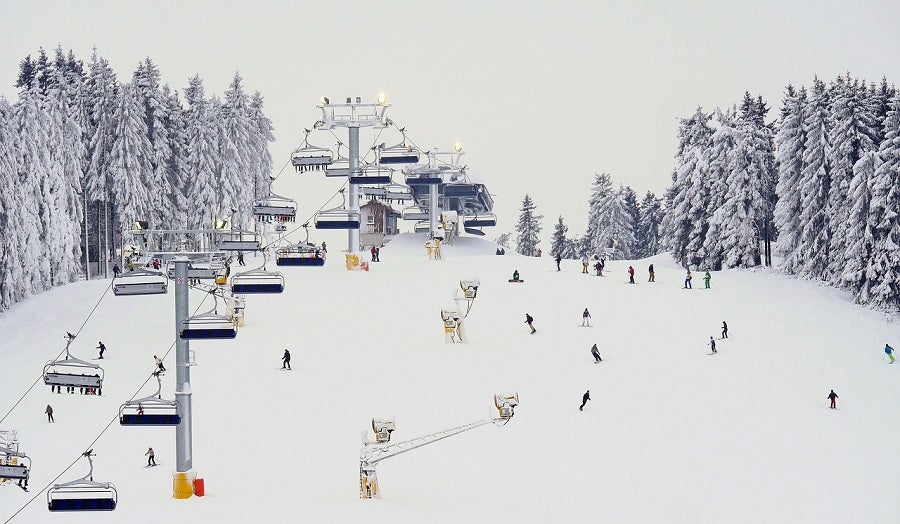
Our Editors independently research, test, and rate what we feel are the best products. We use affiliate links and may receive a small commission on purchases.
If it’s your first or even second trip to the snow, then listen up.
Now is the time to do some research and plan your trip so you can get the most out of it. There’s no shame in being a beginner of course. We all start off at this point.
But it can be nerve-racking (and intimidating) turning up to the slopes when everyone else around you knows exactly what they are doing and you feel clueless about what you are suppose to be doing.
Here’s a few tips and tricks to get you started:
1. Take a lesson
Your mate may be offering to show you the basics, but you’ll learn much more quickly and be in a safer environment with a professional. Ski and snowboard instructors spend years training and know how to get you ripping around the mountain with the best technique. Most resorts even include a beginner lesson with the lift ticket, meaning a few hours with a professional is free!
2. Buy your lift tickets online
You’ll avoid waiting in a long ticket lines so you can hit the slopes early before the crowds and you can sometimes save a few bucks!
3. Protect yourself from the elements
Mother Nature is in charge in the mountains and she can turn on a range of wet and wild conditions. Invest in waterproof gloves, jacket, pants and good goggles so you can comfortably ski longer. Sorry, but your jeans won’t cut it.
4. Connect on social
There’s loads of facebook groups and online forums full of snow enthusiasts doing everything from car pooling to the mountains, trading gear through buy/swap/sell and organising a meal or drink at the bar.
This is a great way to connect with both beginners and experienced skiers. You never know what other tips and tricks you’ll pick up along the way!
5. The early bird gets the worm
Hit the slopes early in the day before the crowds and enjoy the wide open spaces. This not only makes for a safer ride for you because there’s less people to get in the way of, it means you won’t feel so intimidated when the 8 year old kids comes zooming past you like professionals.
6. Take advantage of shoulder season deals
As a beginner you won’t be skiing the whole mountain just yet, and lift tickets and accommodation can be much cheaper at the start and end of the ski season. This will also help you avoid the peak season rush and have more quiet time to yourself to practice your skills.
7. Sunblock isn’t just for the beach
At altitude the suns rays can be stronger than down on the beach. The snow is also more reflective than water so make sure you protect yourself by slipping on a buff to cover your face, slop on sunscreen both morning and midday to cover any exposed skin and slap on some sunnies or goggles to protect your eyes from snow blindness.
8. Cover yourself
Before you make the pilgrimage to the snow check that your ambulance cover is up to date because in the case of an injury, a helicopter or van off the mountain can be mighty expensive.
9. Buddy up
It’s a good idea to have someone else nearby in case you fall, get hurt or loose your way. Even better if that friend is also a beginner, so you can laugh about the fall afterwards together.
10. Don’t forget that it’s a sport
Pre-season fitness will go a long way, as will stretching before and after. And remember to pace yourself through the day with regular breaks for fuel, hydration and a warm up.
The most important thing to remember as a beginner, is to not be too hard on yourself. Falls, bumps and bruises come with the territory. In fact, you may feel muscles hurting after a few days of this that you never knew existed.
Those folks you’ll see carving it up on the mountains have been skiing for years (even since they were little kids). Focus on your own technique and form, have fun and you’ll be carving it up in no time!
